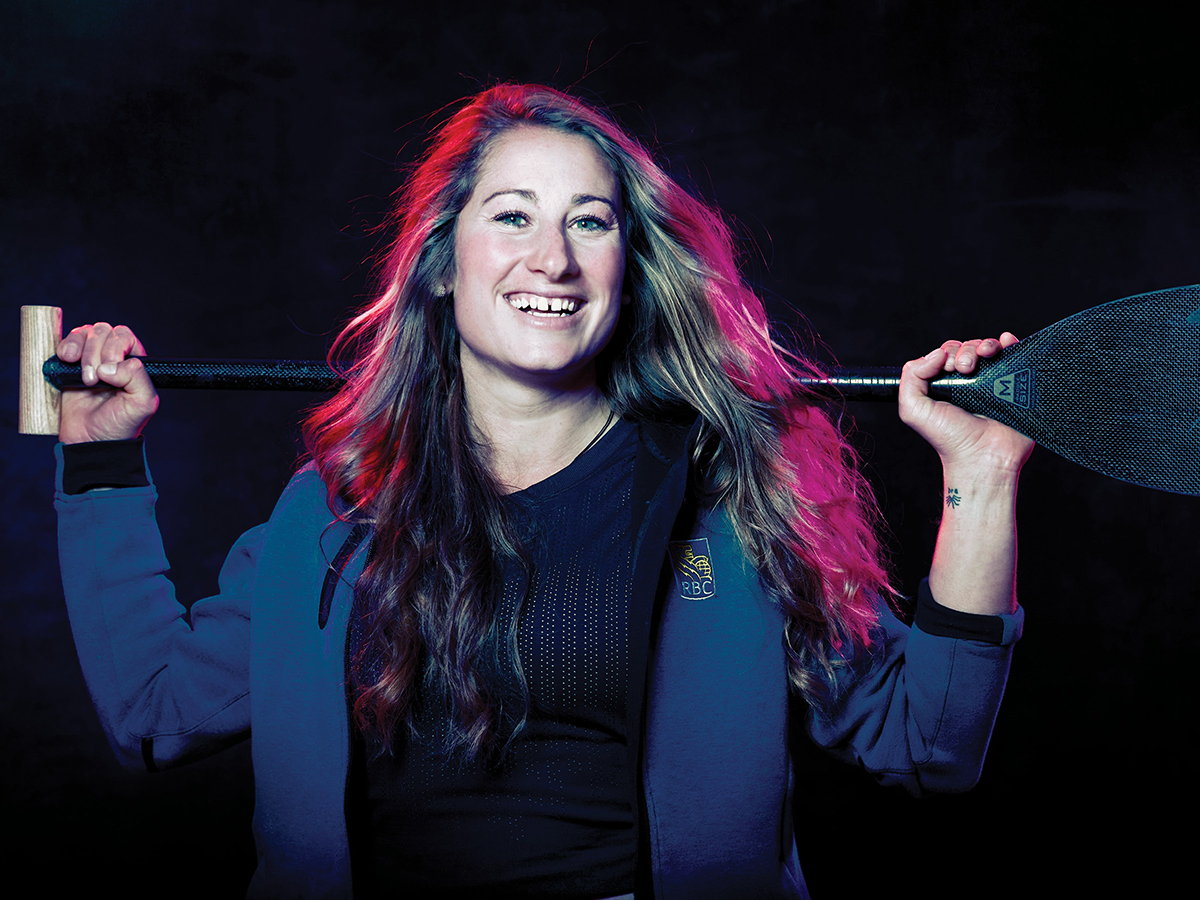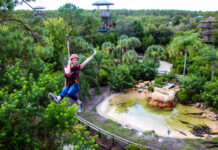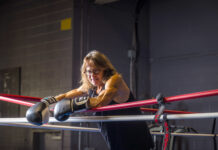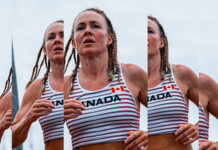Pollyannas often say the tough times prepare you for the rough times.
For Olympic hopeful, Haley Daniels, that isn’t just a saying.
“You have to have highs and lows and mediocres,” says the Tokyo 2020 Olympic hopeful in canoe slalom.
“Being happy all the time is not the goal you should strive for. Everyone has ups and downs. It is important to reflect because when you are in those deep dark moments, when you crawl out of them it feels so damn good.”
That sort of realism, wrapped in positivity, rolls off the Calgarian’s tongue and it’s not just lip-service.
For 16 years, Daniels has dedicated herself to paddling, these days training up to 25 hours a week. She’s working on post-secondary studies, written a vegan cookbook and taken every chance she can to encourage others.
Along the way, she has slammed into roadblocks, battled through injuries and faced disappointments. But none have taken her down.
Instead, the woman who looks for the opportunity in everything, pushes on.
“I haven’t had a typical pathway. I’ve chosen to be a high-performance athlete and on top of that I’ve chosen a sport that wasn’t in the Olympics. We had to fight for our gender,” says the senior national team member with Canoe Kayak Canada.
“There’s all these barriers but all of those have given me so many opportunities. To represent a global issue of gender equality, to help other young girls to recognise their dreams. That is what has made me who I am.”
She was instrumental in the push for paddling to be recognized as an Olympic event, which it was in 2016. But Daniels says she was simply following her values by recruiting others to share their stories and, in a unified voice, pressure the International Olympic Committee to do away with old traditions in favour of gender equality.
“Whether I make it to the Olympics or not, I can proudly say I have been pioneering this legacy and been a big part of where we are now,” she says.
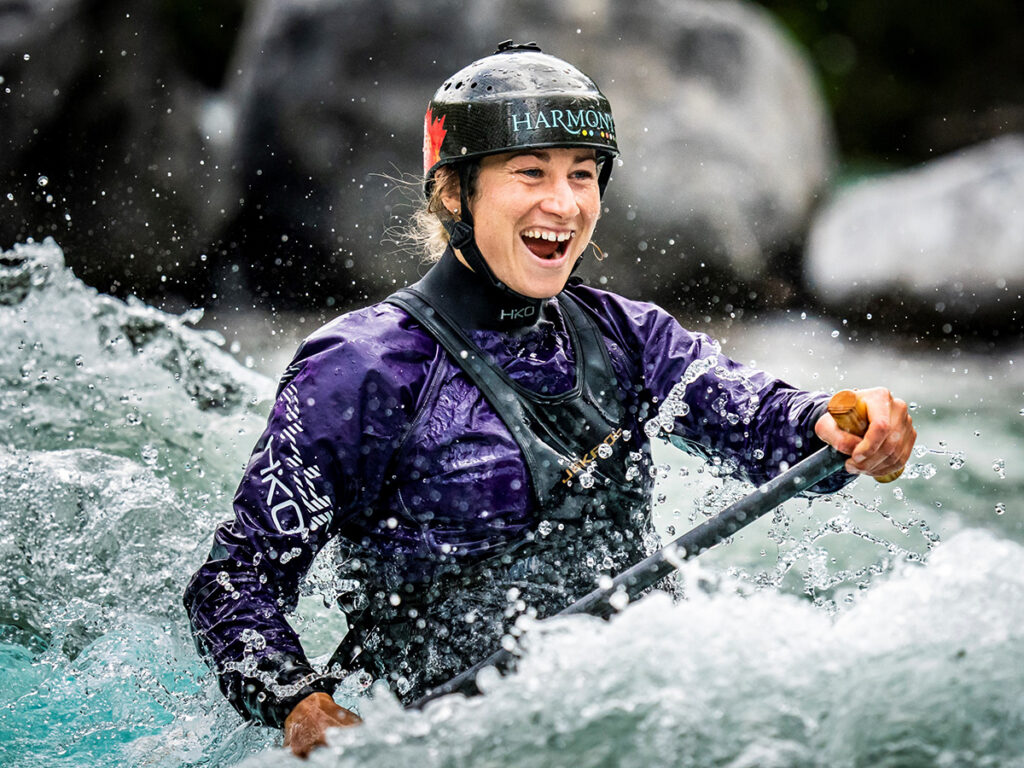
It takes grit to get to where Daniels is, an accomplished young woman poised to make her Olympic debut in a sport that has yet to see women make it to the podium.
And at 29, she wears her resilience like a gold medal, relying on it like a backstage pass to navigate the rapids.
But not long ago, the woman who can traverse rough water, like few can, found herself cast adrift by the revelation of a family secret when her father came out as transgender.
“When my dad first told me, I was not okay with it. It’s not that I wasn’t supportive, I just didn’t know how to be around it,” Daniels says.
So she turned to her sports psychologist, she journaled, she meditated. And she struggled.
If Daniels thought she was aptly handling the upheaval in life as she knew it, her body told her she was mistaken.
Bad skin, trouble sleeping, junk food cravings and dark thoughts. She had them all.
“I started getting hives on my arms when I was driving and thinking about what I had to do that day. It would go away once I would start breathing,” she says.
Proud of her father, and protective, Daniels with the support of her mother, Karen, and brother, Hayden, chose to go public on social media announcing her father’s seismic shift from Duncan to Kimberly.
During Calgary Pride Week, they shared their story.
“I only get one dad, one family, I’ve got to find a way to be okay with it and I wanted to control our narrative,” she says.
And she didn’t want her father, who was a judge at the 2016 Rio Olympics and qualified as one in Tokyo, to have that incredible experience tainted.
“I didn’t want to get to the Olympics and have people saying they don’t want a transgender at the side of the river judging me,” she says.
“Yes, I don’t have a normal family. But screw normal. We are breaking down barriers and we are struggling through it because there is no manual for mental health and that’s something that I realized very viscerally but at the same time if you are optimistic and you have a support system and coping mechanisms it eventually becomes your new normal and your new easy.”
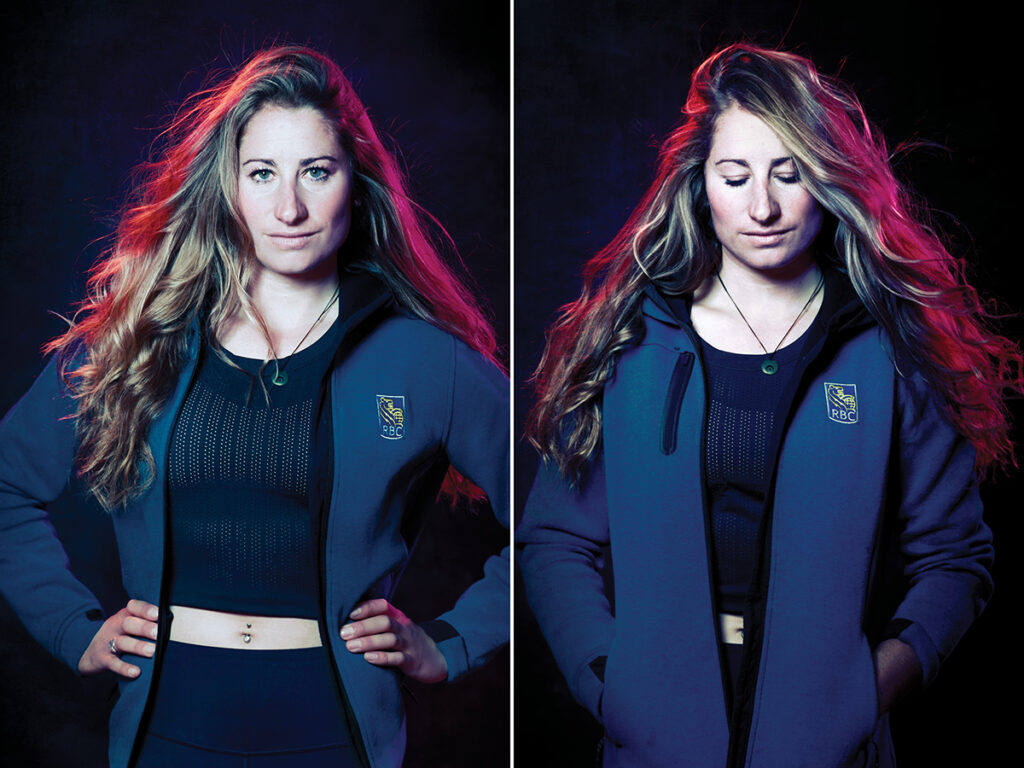
Support for the choice to expose something so private offered affirmation of how powerful it can be to be vulnerable and how important, as a public figure, it is to be an advocate.
It’s one of the reasons Daniels loves being part of the RBC Olympians Program.
Intended as a way to help prepare elite athletes for life after sport, by giving them real-world experience, it also allows Daniels to pay it forward as a public figure through motivational speaking engagements.
While Daniels will spend much of the winter training with her sights set on Olympic trials in the spring, she knows the day will come when she will shift focus and put her paddle away.
“Deciding what’s next is really hard. RBC helps us bridge that gap,” she says. “It’s probably one of the best jobs for athletes out there.”
But the healthy mindset she has earned as an athlete has given her real-life resources she relies on for every aspect of life.
“You have to get your head figured out for the start line,” she says.
“As athletes we are really lucky. We are taught these ways to manage stress for racing and it translates into my personal life.”
It could be stopping for 30 seconds to take in the sunrise before a busy day, connecting with nature, leaning on friends or seeking support.
It is frequent check-ins with her well-worn journal, its pages filled with D3’s, (the daily three things Daniels is grateful for,) and worry lists she works out.
What if I miss my start time? What if I forget my bib at home? What if my paddle breaks?
“It’s cathartic,” she says of the healing power of putting pen to paper.
“As I write, my shoulders go down and I start to breathe.”
One of Daniel’s main mantras, ‘Get To’ is printed on stickers she has put on every one of her boats.
“You don’t have to do anything,” she explains. “You get to. You don’t have to wake up but you have the opportunity to get up and use your legs today. It’s looking at your privilege and ability. If you reframe it, then you start to realize how fortunate you are. It’s so simple but it’s so impactful.”
Right now, however, nothing compares to the living-in-the-moment slam dunk delivered by hitting the water.
“I call paddling my church,” Daniels says.
“It’s a spiritual thing.”
As for the unexpected break brought on by a global pandemic, it made Daniels better prepared for Tokyo 2020 which is currently set to unfold in 2021 due to the pandemic.
“It sucked going through an Olympic year and then doing it again,” she says.
“I’m not young. Now, I am going to be 30 when I go to my first Olympics. I wanted to settle down and have a family – life after sport for me has been put on hold.”
Always seeking the silver lining, Daniels found one.
“I look at everything as an opportunity,” she says. “I look at that with sport, my family, what you are dealt.”
“Although it was a setback it has given me time to sort my head out and be in a calm place and look at what’s ahead. I’ve had my own struggles and have come out strong. Now, I know exactly what I want, who I want to be and where I want to go. It’s almost like it was meant to be,” she adds.
“Even if I don’t do the Olympics, I really feel like I’ve left this legacy for future canoeists, future young athletes and I want to enter the second stage of my life as inspired and motivated as I have been in the first. Whatever I do, (after sport,) I want to love what I do and feel like I’m making a tangible difference.”
Athlete Highlights
| Result | Event | Location | Year(s) |
| Reigning | Canadian National Championships | Canada | 2012, 2013, 2014, 2016, 2017, 2018 & 2019 |
| 1st Place | Rutherford Open International ICF Ranking | Pemberton B.C., Canada | 2020 |
| 31st Place | World Cup#5 | La Seu d’Urgell, Spain | 2018 |
| 1st Place | Pan American Championships | Turrialba, Costa Rica | 2017 |
| Bronze Medal | Pan American Games | Toronto ON, Canada | 2015 |
| 10th Place | Tokyo Test Event | Tokyo, Japan | 2020 |
| 6th Place | Australian Nationals | Penrith, Australia | 2020 |
| 28th Place | World Cup #3 | Tacen, Slovenia | 2019 |
RBC Olympians Program
Dedicating years to sport is an all-consuming endeavor for Canada’s elite athletes. But when they are done chasing Olympic dreams, an entire world of new opportunities awaits.
“We recognized an elite athlete probably started their sport at an early age and their entire life was dedicated to that sport,” says Jerilynn Daniels, RBC’s Regional Director, Community Marketing and Citizenship (Alberta & Territories).
“In many cases when they are set to retire at the ripe old age of 20 whatever or 30 whatever, many don’t have a lot of real-world work experience.”
In 2002, RBC launched its Olympians Program to help athletes better prepare for life after sport. Olympic and ParaSport athletes, recruited to work as ambassadors, get work experience and connections that will serve them in their next career.
“It takes an incredibly strong person to endure the tireless training and approach each day with resilience and mental fortitude in these uncertain times,” said RBC Regional President Jeff Boyd, Alberta & Territories. “These athletes have given their lives to sport and train so diligently to represent our country on the world stage. I’m confident our RBC Olympians have the strong mental endurance to overcome new challenges and prepare for a whole new competition in Tokyo.”
Key to its success, is the recognition that transitioning to life after sport can be tough even for individuals with the mental fitness required to achieve athletic goals on the world stage.
It requires preparation which the Olympians Program provides through boots-on-ground experience and opportunities to, essentially, repurpose the very skills that made them champions in sport into whatever will see them excel in occupations they pursue after they hang up their skates.
It builds the tools and confidence required to make the mental shift from living in the Olympic realm to something, perhaps, a bit more ordinary.
Athletes hired into the program work with RBC’s sponsorship and marketing teams and represent the corporation at community events, including speaking engagements which are mostly virtual these days.
Their sports commitments are priority with the program working around training and competing schedules in a way few, if any, employer would.
The program is as much an investment in an athlete as it is a gift to Canadian communities with the Olympians uniquely positioned to share experience on everything from fitness to strategies on goal setting and the moxie it takes to achieve a winning mental mindset.
“They bring a level of conversation many of us can’t imagine. What does it feel like to walk into an Olympic stadium and represent your country? What did it feel like to win a gold medal or what did it feel like to miss it by 1/100th of a second? They teach us a lot about resiliency,” Daniels says.
The Olympians Program is just one way RBC is committed to young Canadians.
With RBC Future Launch, it is investing more than $500 million over 10 years into preparing youth of today for the future, mental health being just one component of the initiative which is the largest commitment to a single issue made by a corporation in Canadian history.
Photos by Trudie Lee and Dave Holland
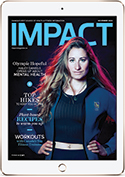 IMPACT Magazine’s November Edition
IMPACT Magazine’s November Edition
RBC Olympic hopefuls Hayley Daniels, Sam Effah and Kate Wright as our inspiring cover athlete stories! Get prepared for winter running, making movement part of your workday, and exploring great hikes near Calgary and Vancouver.


